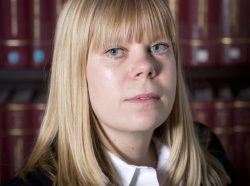Last week, Mr Justice Choudhury handed down judgment in AB v CD [2025] EAT 73 click here to read the judgement, holding that the Employment Tribunal had been entitled to find that AB was not disabled within the meaning of section 6 Equality Act 2010, did not hold any beliefs capable of protection pursuant to s.10 Equality Act, and that the Tribunal was entitled (further or alternatively) to strike out all of his claims.
AB alleged that he was incapable of wearing a facemask during the height of the covid pandemic because he:
- fervently believed that no-one should be required to wear a mask against their will. In particular, he relied on an alleged philosophical belief in “freedom, dignity, bodily autonomy and integrity”; and
- suffered from a ‘disability’, which included experiencing a visceral psychological reaction at the thought of wearing a mask.
Due to these alleged protected characteristics, AB alleged that he had been discriminated against by his employer when it implemented a policy (between May 2021 and February 2022) requiring all employees to wear a facemask while attending the office.
The case will be of particular interest to practitioners for the following aspects of the judgment:
- The case now forms part of a line of authorities (including Thomas v Surrey and Borders Partnership NHS Foundation Trust and another [2024] IRLR 938) which permit first instance judges to look beyond the strict confines of the ‘belief’ relied upon by the claimant. Here, AB’s (potentially coherent) belief in bodily integrity was ‘infected’ by less cogent beliefs that masks were to be associated with slavery, subjugation, occult practices and that that mask-wearing in the pandemic amounted to Munchausen’s by proxy.
Accordingly, not only will the case encourage employers to point to the outer-edges of a claimant’s alleged beliefs, but also it serves as a (relatively) rare example of a belief which is insufficiently cogent to come within the modest requirements of section 10 and the Grainger criteria – a notoriously low threshold, as recognised in R (on the application of Williamson) v Secretary of State for Education and Employment [2005] UKHL 15).
As a warning to claimants, Mr Justice Choudhury noted that:
“the person who has ‘chopped and changed’ their belief, or who invites the Tribunal to focus on only an aspect or certain aspect of it, inevitably runs the risk that the pleaded belief as a whole may lack cogency or cohesion”.
- Further, the case stands as a cautionary example of defining one’s belief too narrowly, or indeed too widely. By the time of trial, the Claimant had sought to recast his belief into one based simply on the right to choose whether to wear a mask or not. However, that belief was incapable of supporting his claim for indirect discrimination. By removing from his belief any reference to his alleged unwillingness or inability to wear a mask, the Claimant had also removed any prospect of ‘group disadvantage’ from the application of the Respondent’s policy. Accordingly, his indirect discrimination claim was bound to fail.
- Finally, the case re-emphasises the central role that the requirement of “an impairment” plays in the statutory definition of disability. A refusal or alleged inability to do something that one disagrees with, cannot be a disability in the absence of the claimant suffering from a mental or physical impairment. In cases such as this, the EAT highlighted the importance of claimants calling adequate medical evidence to establish their claims.
Alongside other members of Chambers, Andrew is a leading practitioner in religion and belief claims, representing both Claimants and Respondents before the Tribunal and at every level of appeal.
Links:









